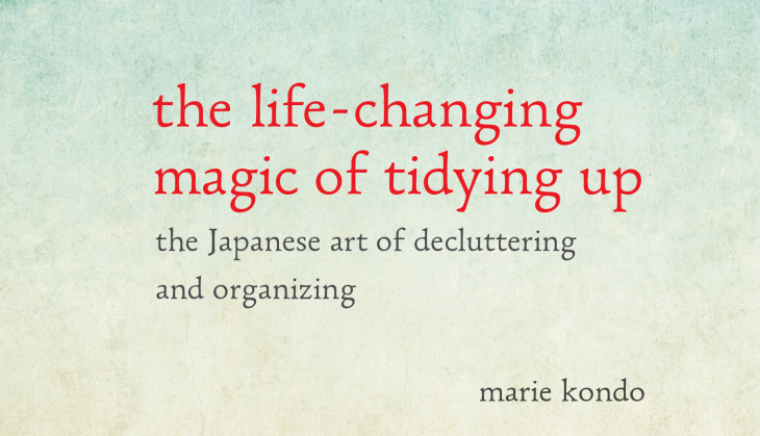Is there a link between cleanliness & godliness in the Bible?

LYNCHBURG, Va. (Christian Examiner) – Despite the popularity of minimalist living, manifested in the popularity of Marie Kondo's The Life-Changing Magic of Tidying Up, a primer on home organization, some Christians question whether the association between cleanliness and godliness can really be found in the Bible.
"Many believe that the mantra 'cleanliness is next to godliness' comes from the Bible, but that isn't true," Karen Swallow Prior writes in an opinion article for the Washington Post.
Prior, a professor of English at Liberty University, notes that mantra is the essence of Marie Kondo's newest book, Spark Joy, which is characterized by "extreme de-cluttering."
But Kondo isn't writing from a Christian perspective. The professional cleaning consultant and bestselling author spent five years as a shrine maiden at a Shinto temple and recommends thanking items for their service before discarding them.
Prior says Kondo's tidying method is driven by "her new book's explanation that her minimalist ethic is informed by her background in Shintoism, the traditional, ritualistic Japanese religion that emphasizes ritual and the spiritual essence of everything."
Blogger Annie Kate, a homeschool mom, found Kondo's philosophy extremely off-putting. "Marie was a Shinto shrine maiden for five years and her religious reverence for possessions and her constant communication with them is foreign to us Christians," the blogger wrote in a review of Kondo's first book.
'AN EMPTY LIFESTYLE'
In The Life-Changing Magic of Tidying Up, Kondo describes her ritual of coming home each day from work: "Picking up the pair of shoes I wore yesterday and left out in the entranceway, I say, 'Thank you very much for your hard work,' and put them away in the shoe cupboard."
"This book is such a shocking immersion into an empty lifestyle that it drives me to prayer," Annie Kate added.
Others question whether minimalism is hypocritical. "On the surface, minimalism seems like a holier pursuit than materialism. Won't it make us more like Christ, who told his followers to leave their belongings behind?" wonders Kate Shellnutt in Christianity Today.
Noting Kondo's philosophy that an orderly life indicates a happy or content life, Shellnutt cautions Christians not to be taken in by appearances. "But treating any lifestyle change as the real key to happiness usually means idols are lurking underneath," she said.
As a shrine maiden, Kondo would likely have been involved in daily ritual or sacred cleansing of the Shinto temple, an action that may have influenced her philosophy about organization and lifestyle.
Shellnutt implies clutter in people's houses does not indicate their spiritual status, something Kondo suggests will keep them from joy. Rather than weighing us down, possessions "are often the tools for living our lives with hospitality, generosity, and service," Shellnutt claims.
TIDINESS AND GODLINESS
Cleanliness is mentioned in the Bible, but not as an actual source of godliness, Prior points out: "In both Jewish and Christian traditions, the cleansing of bodies symbolizes spiritual purity, but it's not as transactional a relationship as Kondo's magical formula."
The "magical" tidying formula has to do with keeping only items that "spark joy," in Kondo's terms.
Kondo's tidying method, called the "KonMari method," involves rituals that teach self-discipline and gratitude, although the gratitude is directed toward objects in people's lives like clothes and dishes.
"This is certainly not a Christian book, but its basic principles of gratitude should be part of every Christian life," Annie Kate acknowledges. "What's more, it gives a deep, authentic look into the thoughts of someone from a Shinto background, helping us understand yet again how much the world needs to learn about Jesus."
Prior says Kondo is not wrong to see a correlation between physical orderliness and spiritual contentment, but the act of tidying itself should not be the point of self-discipline and purity.
"Decluttering, like cleanliness, has become almost its own religion," Prior said. "But its real magic is in the joy of recognizing that the desire to create order amid chaos, to resist the dirt of decay, reflects the order and purity of the one who created us."